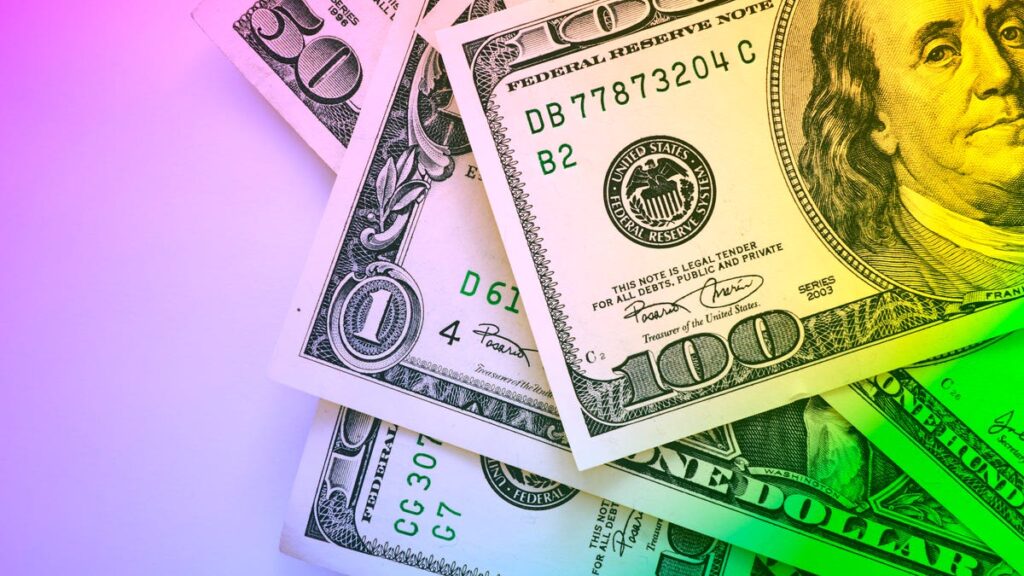- You can earn up to 4.50% APY with today’s best CDs.
- Unlike stocks, CDs are low-risk and offer guaranteed returns.
- A CD can be a safe haven for your money in a shaky economy.
There’s a lot to be uncertain about when it comes to your money right now. From tariff fallout to stock market turbulence, the headlines are full of ups and downs that are beyond your control — and can have a real effect on your finances. If you’re worried about protecting your cash, putting some of it in a certificate of deposit can be a smart move.
“One of the main benefits of purchasing a CD in today’s economic environment is the stability it can provide to a portion of your portfolio,” said Faron Daugs, CFP, founder and CEO at Harrison Wallace Financial Group. “CDs allow you to lock in a guaranteed rate of return, offering peace of mind knowing those funds will be available when the CD matures.”
TAX SOFTWARE DEALS OF THE WEEK
Deals are selected by the CNET Group commerce team, and may be unrelated to this article.
Today’s best CDs offer annual percentage yields as high as 4.50%. Here’s where you can find the top CD rates available now — and how much you’d earn by depositing different amounts today.
Best CD rates today
| Term | Highest APY* | Bank | Estimated earnings on $1,000 deposit | Estimated earnings on $5,000 deposit | Estimated earnings on $10,000 deposit |
|---|---|---|---|---|---|
| 6 months | 4.50% | CommunityWide Federal Credit Union | $22.25 | $111.26 | $222.52 |
| 1 year | 4.40% | Bask Bank; CommunityWide Federal Credit Union | $44.00 | $220.00 | $440.00 |
| 3 years | 4.15% | America First Credit Union | $129.74 | $648.69 | $1,297.38 |
| 5 years | 4.20% | America First Credit Union | $228.40 | $1,141.98 | $2,283.97 |
Experts recommend comparing rates before opening a CD account to get the best APY possible. Enter your information below to get CNET’s partners’ best rate for your area.
Here’s why you should open a CD now
CDs offer a number of benefits, including:
- Low risk: CDs held by an FDIC-insured bank or NCUA-insured credit union are protected for up to $250,000 per depositor, institution and account category. That means that if your bank fails, your money is safe. Other investments, like stocks, may potentially yield higher returns over the long term, but they’re also volatile, which means you could lose money at any time.
- Guaranteed returns: Your APY is locked in when you open a CD, unlike with savings accounts, where interest rates can vary at any time. A CD’s fixed rate makes it easy to calculate how much interest you’ll earn over time and protects your funds from rate drops after you open your account.
- Competitive rates: Traditional savings accounts offer minimal APYs, sometimes as low as 0.01%. Today’s top-yielding CDs have APYs of 4.50% or more, which can make a difference in your interest earnings and help your money keep pace with inflation.
- Barrier to access: Many CDs, however, charge an early withdrawal penalty if you take your money out before the term ends. This can help you resist the urge to dip into your funds before you need them.
Another smart choice: high-yield savings accounts
CDs have plenty of perks, but they’re not always the right fit for your needs.
“Right now, both a CD and a high-yield savings account are good options, but you must remember a CD has a fixed term, whereas an HYSA offers more flexibility to access your money,” said Krisstin Petersmarck, a financial advisor at New Horizon Retirement Solutions. “The tradeoff is CDs offer a higher interest rate for your money to be locked in versus HYSAs that offer a lower interest rate.”
To determine if a CD is the right choice for your money, ask yourself the following questions:
- When will you need your funds? You’ll pay a penalty if you take money out of a CD before it matures. In contrast, you can withdraw cash from a savings account at any time, free of charge (as long as you mind any monthly withdrawal limits).
- How much do you have to deposit? Some CDs require a minimum deposit to open an account, typically $500 to $1,000. If you can’t find an account with an attractive APY for the amount you want to deposit, try looking into a high-yield savings account with a low or no minimum deposit.
- Do you want to add money over time? Most CDs (though not all) only allow a one-time deposit. If you’d like to regularly add money to your savings over time, consider a high-yield savings account.
- Do you need some discipline? If you’re worried you’ll be tempted to tap into your savings before you need it, a CD imposes an early withdrawal penalty, which can help give you pause.
💰You can earn up to 5% APY on today’s best high-yield savings accounts. Check out top savings rates now.
Methodology
CNET reviews CD rates based on the latest APY information from issuer websites. We evaluated CD rates from more than 50 banks, credit unions and financial companies. We evaluate CDs based on APYs, product offerings, accessibility and customer service.
The current banks included in CNET’s weekly CD averages include Alliant Credit Union, Ally Bank, America First Federal Credit Union, American Express National Bank, Barclays, Bask Bank, BMO Alto, Bread Savings, Capital One, CFG Bank, CIT, CommunityWide Federal Credit Union, Discover, EverBank, First Internet Bank of Indiana, First National Bank of America, Forbright, LendingClub, Limelight Bank, Marcus by Goldman Sachs, MYSB Direct, NexBank, Quontic, Rising Bank and Synchrony.
*APYs as of April 11, 2025, based on the banks we track at CNET. Earnings are based on APYs and assume interest is compounded annually.
Read the full article here
